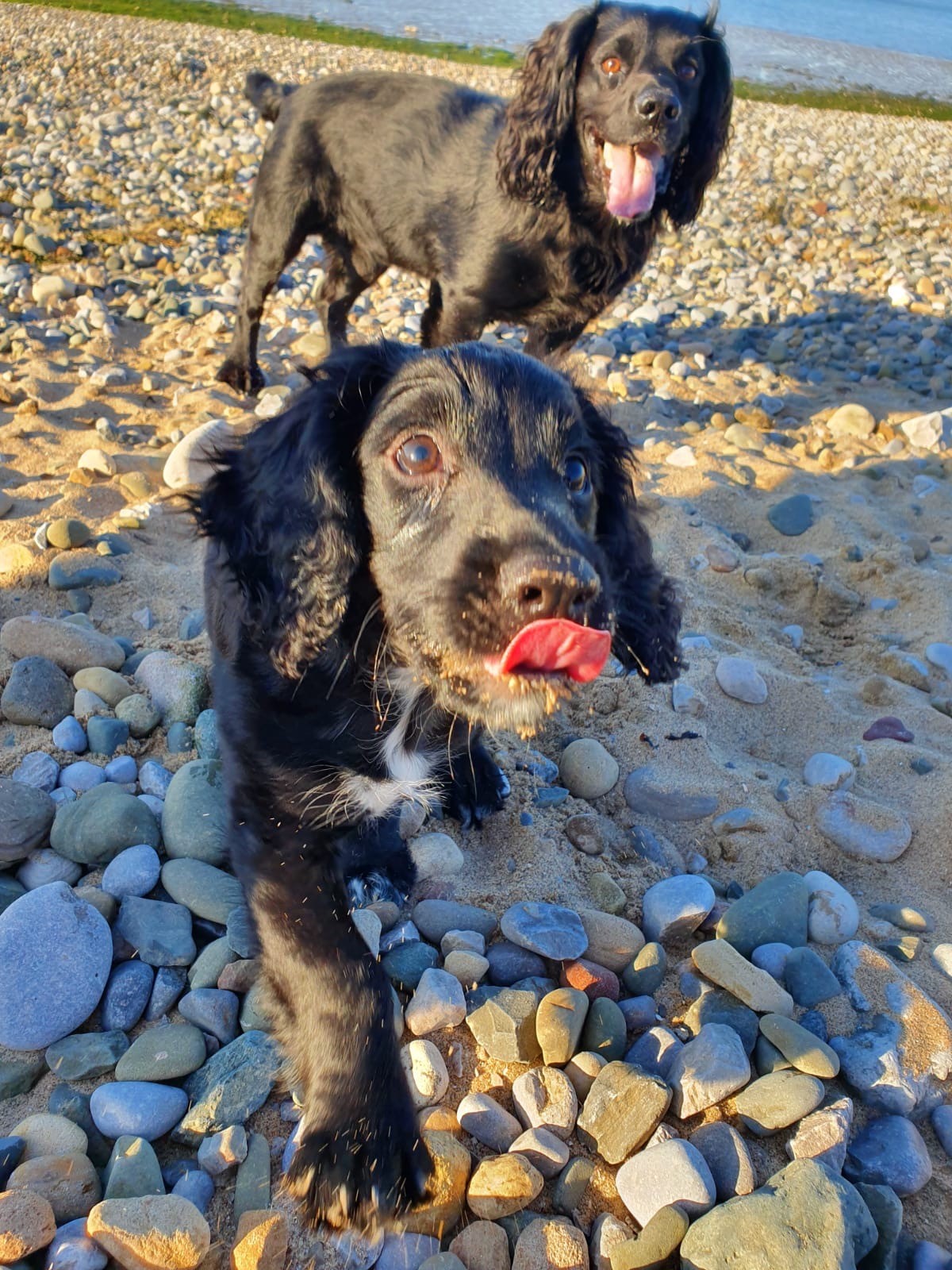I had an interesting experience with my dog Nimrod, who, at the time of this article was 8 months when we went out for a spot of spaniel training.
I took him to the woods near to home rather than our usual training area on the fell, as the weather was really wet and there was a lot of low cloud on the top of the fell, so the woods seemed like a safe choice.
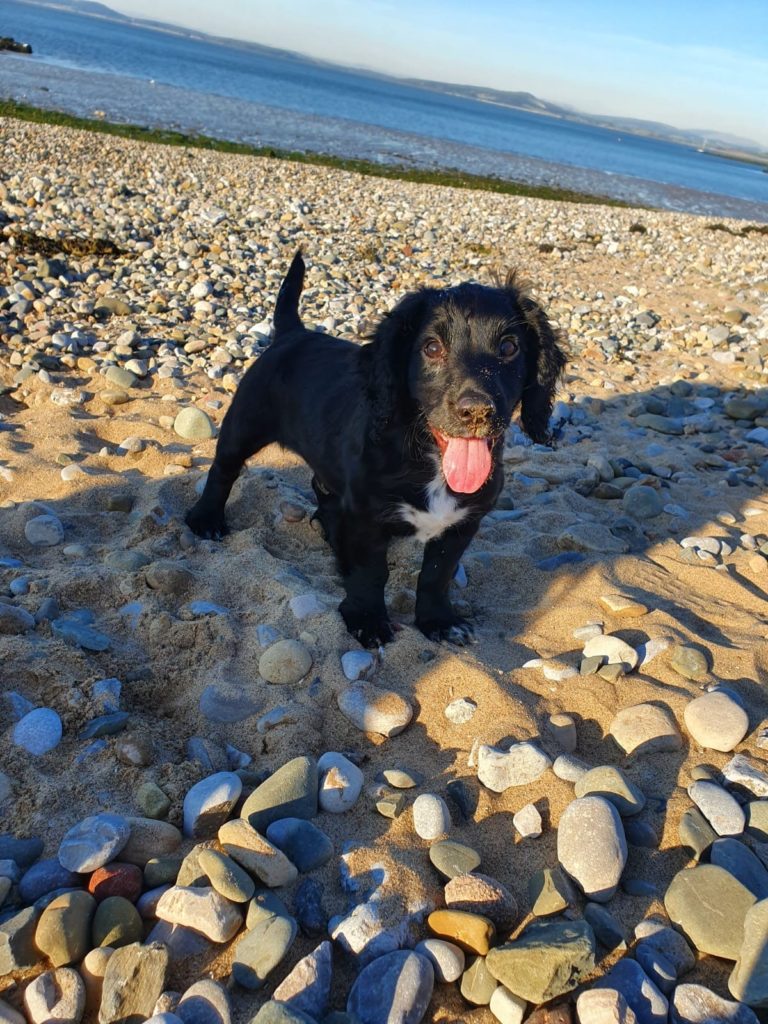
I also had my daughter Kate with me as she wanted to do a bit of training with our other Cocker, Boris.
This was the first time that Kate came along when I’ve been doing some training with Nimrod.
Although Nimrod will retrieve really nicely for me, he’s reluctant to do this for Kate, so, I’d set up the seeds for a problem.
Nimrod the Cocker Spaniel does a runner with the dummy and tries to bury it..!
Normally Nimrod is fine with his retrieves. Although he was only a young dog at the time ( he’s eight months old), he had come on well and, for a spaniel youngster, he’s really keen to pick things up and bring them to hand for me.
On this occasion Nimrod decided that he would run off with the dummy, dig a hole at the base of a tree, and bury it.
I have to say that I was too busy laughing at the actions of this young Cocker spaniel to do anything constructive about it.
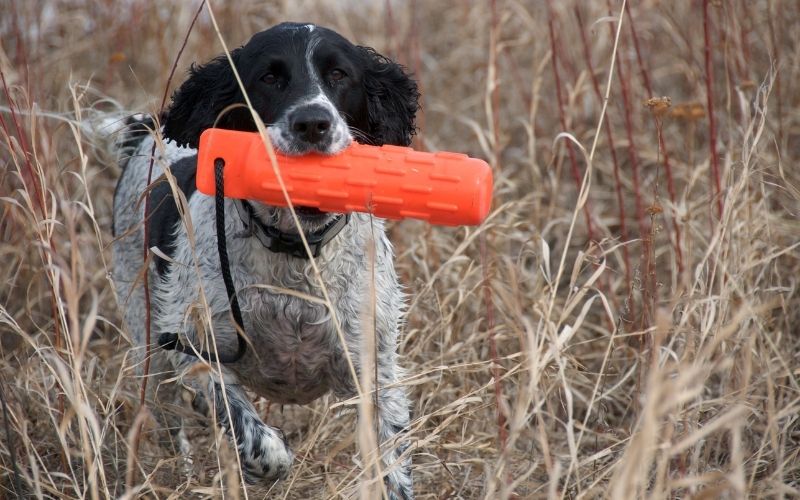
In the case of Nimrod, I’d not really thought things through properly before beginning the training session, and a combination of things probably resulted in Nimrod ‘nobbing off and digging holes to hide the dummy in’.
Firstly, I’d changed the location of training.
Rather than going to the fell where we normally train, I’d taken the dogs to the woods ( where we often go just for exercise ).
Now agreeably a gundog should be able to adapt to lots of different places when working, but, with a young dog, particularly a sensitive puppy like Nimrod, you need to tread carefully.
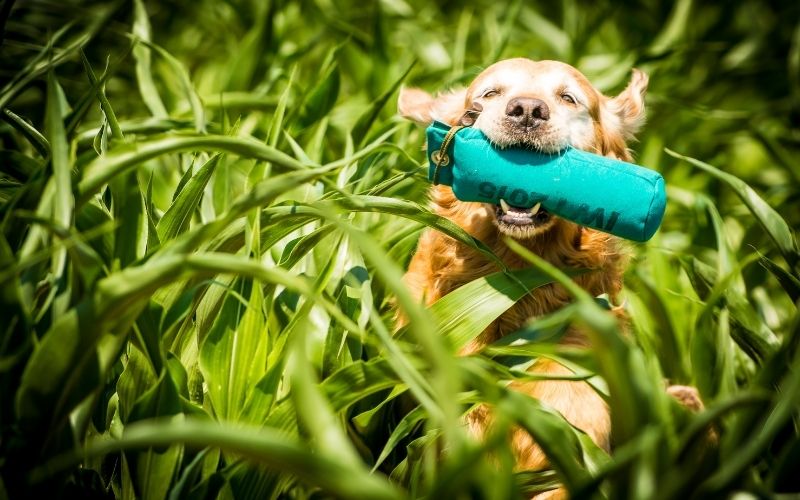
Secondly, I had Kate with me. Kate and Nimrod are good buddies and Nimrod tends to take advantage of Kate whenever he can.
Kate doesn’t often come training with me and Nimrod probably thought that today was more ‘play day’ than training, and that he could ‘try it on’ a bit.
Thirdly, I’d used a fur dummy rather than the regular canvas one that I tend to use.
Often a dog that is great with ‘boring’ canvas dummies will get possessive over more interesting fur or feather dummies.
They smell good, taste different and have a much more interesting appeal to a young dog.
So, on reflection, I’d made perhaps too many changes for little Nimrod to process.
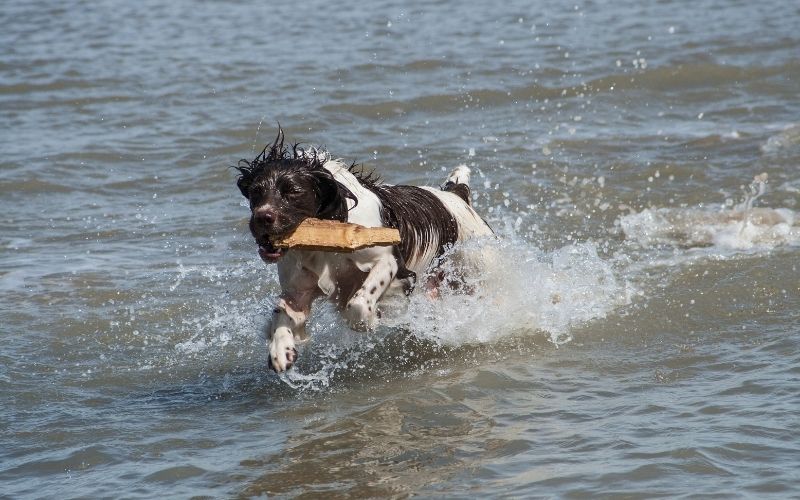
How to deal with gundog retrieving issues
You’ll find that you experience bad days with your spaniel. There will be times when it doesn’t seem to work. Take a breath and think it through carefully.
Have you made any changes? Clearly I had and Nimrod reacted to them.
Think – is the dog on par? If he is unwell or otherwise, then leave it until he recovers.
Are there distractions? Today I had Kate with me and Nimrod wasn’t used to this.
I’d changed to a fur dummy and clearly Nimrod decided that he was going to try and ‘keep the treasure’.
What’s the weather like? Yes, strange as it may seem the weather can affect your spaniel. I have had spaniels that go totally bonkers when the wind is wild.
Maybe something happens with their hearing but when it’s windy stay on your toes, your spaniel may go nuts.
Use the recall whistle
Your dog should be familiar with the recall and reliably come back to you when it is blown.
Nimrod is a good boy when the recall is blown and he almost knocks me over as he gallops back.
Today he didn’t do that.
[amazon box=”B07D3QD3FZ” template=”horizontal” description=” “]
If the dog disobeys the recall when retrieving it is really important that we don’t engage in a game of chase.
If we try to approach him when he is reluctant to come up with the dummy, then, chances are he’ll run off, thus you end up with a chase me scenario which is great fun for the dog and totally frustrating for you.
The best strategy is to walk or run away from the dog, while giving the recall whistle and calling his name.
When all that fails
In the end I had to get close to Nimrod, when I was confident that he couldn’t escape or run away with the retrieve.
Without making a fuss I took the dummy off him and moved to a different location where we tried again.
A different dummy and a different result
Sometimes, just a small change with a young dog can make a massive difference with his retrieve.
The next video shows Nimrod getting his retrieving back on track.
What had changed? Simply rather than use the fur dummy I reverted back to the small canvas dummy and he returned promptly to hand.
On the first occasion he tries to disappear and you’ll hear me express my disapproval at him, and, as soon as he turns around I’m encouraging him towards me.
Keep your eyes on your dog and be quick to react and change your style and approach.
Be consistent and persevere with spaniel retrieving work
Most spaniels are natural retrievers but it is not their first love. Unlike Labradors that are bred solely for retrieving work, a spaniel has to be a good all rounder.
The spaniel’s prime interest and love is hunting and this is their key interest and desire.
If your spaniel plain refuses to retrieve then you have to cut down his hunting and even prevent him from doing it for a while.
Find something, anything that he loves to carry around. This could be a dummy, shoe, slipper, rolled up socks, whatever he likes to carry – there will be something important to him.
Whenever he has this encourage him to you. Never, ever shout at him or chastise him when he has anything in his mouth, even if it is your most precious possession.
When he comes to you always give him large amounts of praise – you can even use edible rewards or treats.
Throw the item for him and allow him to run in after it, don’t try to stop him, then encourage him back to you.
This is something that you can do in your hallway at home and this type of environment, where the dog can’t run off is ideal for this basic exercise.
It has to be fun for the dog and you should aim to make this as much of a game as possible.
Persevere. If you do this with your dog when he is a youngster you’ll reduce the risk of any retrieving problems as an adult.
Final Words
Most spaniels and other dogs will, at some point, display some difficulties when retrieving. Often is is because you are rushing ahead or have over done the retrieving work.
With a little thought and perhaps some back tracking with your training schedule, you’ll be able to work through the difficulties and soon be making progress again.

